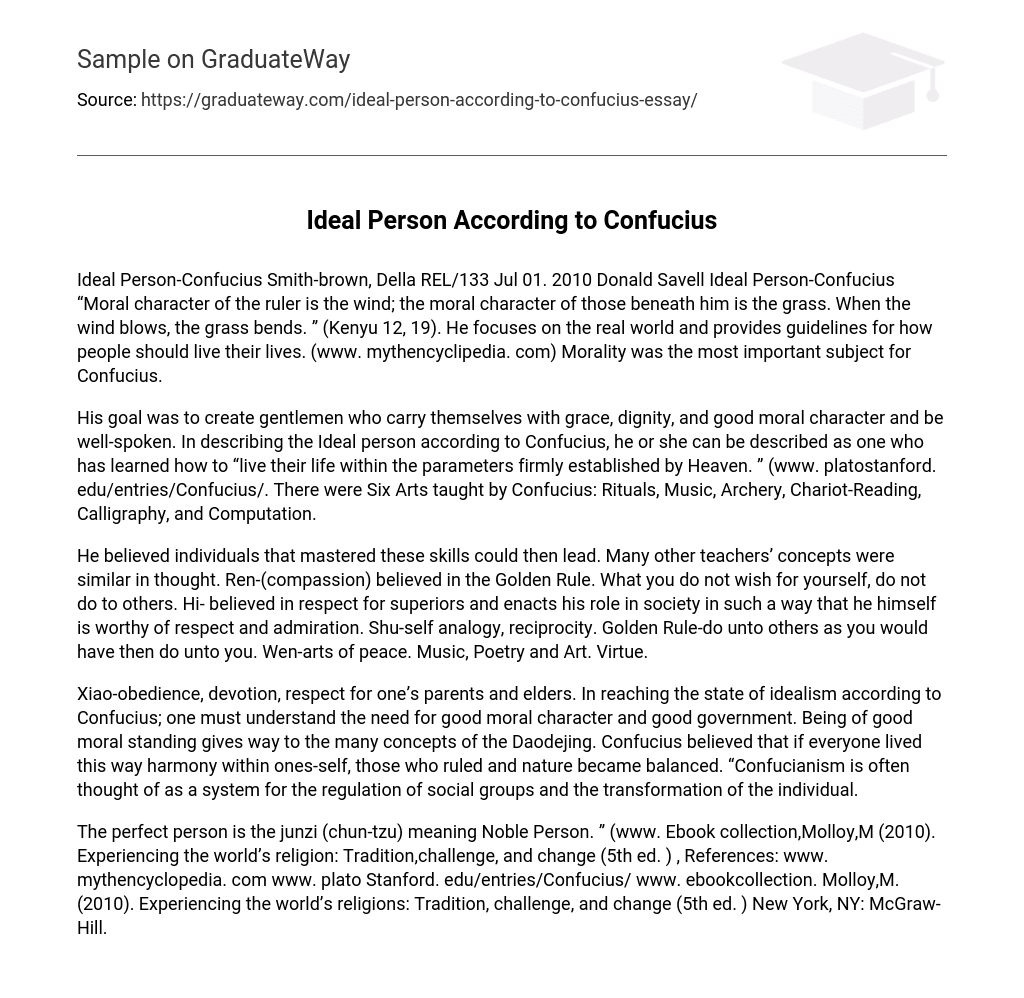According to Confucius, the moral character of the ruler is crucial, likening it to the wind, while the moral character of his subjects resembles grass. Confucius believed that people should be influenced by the ruler’s moral character, just as grass bends when blown by the wind. In his teachings, Confucius emphasized principles for individuals to lead ethical lives in reality. Morality was central to Confucius’ teachings.
Confucius sought to cultivate individuals who possessed grace, dignity, good moral character, and eloquence. According to his teachings, the ideal person is one who has achieved mastery in living according to the divine principles established by Heaven. Confucius instructed on the Six Arts: Rituals, Music, Archery, Chariot-Reading, Calligraphy, and Computation.
He believed individuals who mastered these skills could then lead. Many other teachers had similar concepts in thought. Ren (compassion) believed in the Golden Rule – what you do not wish for yourself, do not do to others. Hi believed in respect for superiors and enacts his role in society in a manner that he himself is worthy of respect and admiration. Shu-self analogy and reciprocity. The Golden Rule states to do unto others as you would have them do unto you. Wen represents the arts of peace, including music, poetry, and art virtue.
Xiao is the principle of obedience, devotion, and respect for one’s parents and elders. According to Confucius, to achieve the state of idealism, one must comprehend the significance of possessing good moral character and good government. Being morally upright paves the way for understanding the various concepts found in the Daodejing. Confucius asserted that if everyone embraced this way of life, harmony would be achieved within oneself, among those in positions of authority, and even in nature. Thus, Confucianism is often considered a system that regulates social groups while also transforming individuals.





